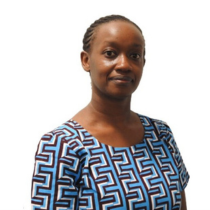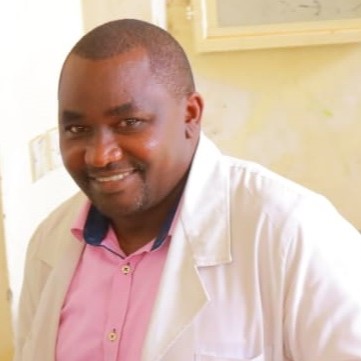Our 2025 conference focuses on shaping the future of healthcare through innovation and collaboration, and will bring together experts from various fields to explore cutting-edge solutions that enhance healthcare access, quality, and efficiency. Designed for early career researchers, the event provides a platform to present research, gain insights from industry leaders, and build valuable connections with experienced professionals.
Through keynote sessions, panel discussions, and networking opportunities, participants will gain the knowledge and support needed to drive impactful change in healthcare.
Key Areas of Focus:
-
Healthcare Innovation & Technology: AI, big data, digital health, telemedicine, and emerging medical solutions transforming patient care.
-
Multi-disciplinary Collaboration: Integrating medicine, technology, policy, and social sciences through case studies and partnerships.
-
Healthcare Policy & Systems Strengthening: Improving access, affordability, reforms, and infrastructure in developing regions.
-
Evidence-Based Research & Best Practices: Advancing prevention, patient-centered care, and applying research to real-world solutions.
-
Future of Healthcare & Global Trends: Preparing for pandemics, driving sustainability, and reshaping medical education.
Keynote Speakers

Prof Helen Nabwera
Helen is a Paediatrician and Physician Scientist working in the Department of Paediatrics and Child Health and the Centre of Excellence in Women and Child Health at the Aga Khan University in East Africa. She has over two decades of clinical research experience from sub-Saharan Africa and the UK.
Helen an awardee of the prestigious UK Medical Research Council (MRC)/Foreign Commonwealth Development Office, African Research Leader (2020). Her research focuses on evaluating interventions to improve growth and neurodevelopmental outcomes among small and vulnerable newborns in impoverished communities in sub-Saharan Africa. This involves co-designing and testing innovative strategies that integrate early child nutrition with maternal well-being, among those hospitalised and post-discharge, to reduce morbidity and mortality among these at-risk infants.
Helen qualified from the University of Nottingham Medical School and did her postgraduate clinical training in the East and West Midlands Deaneries of the UK. She was awarded a MRC Career Development Fellowship (2012-2015). During her fellowship, she managed a rural primary health care facility at MRC Unit, The Gambia’s rural field station in Keneba, and undertook research on growth faltering in early childhood in the rural communities. She has a PhD from the London School of Hygiene and Tropical Medicine (2017) and a Diploma in Tropical Medicine and Hygiene from LSTM (Distinction-2005).
She has over 50 publications in peer-reviewed journals and has co-authored six book chapters in the fields of infant feeding, paediatric infections and early childhood growth.
Helen is passionate about mentoring child health practitioners across Africa to use both evidence-based practices and soft skills to optimise the care that is delivered to children and their families.
.jpeg)
Prof Kamija Phiri
Executive Director
Training and Research Unit of Excellence (TRUE)
Prof. Kamija Phiri is a distinguished academic leader and researcher whose contributions to public health and medical education have had a profound impact both in Malawi and globally. With a career spanning over two decades, he has held key leadership roles, including serving as the founding Dean of the School of Public Health and Family Medicine at Kamuzu University of Health Sciences (KUHeS), formerly the College of Medicine. In this capacity, he was instrumental in developing and implementing the school’s growth strategy, transforming it into a center of excellence for public health education and research. Prior to this, he served as Dean of Postgraduate Studies and Research at KUHeS, where he oversaw all postgraduate programs, research activities, and collaborations with research affiliates.
His leadership in curriculum development, including the creation of PhD and master’s programs in epidemiology, medical statistics, and global health, has significantly strengthened the university’s academic and research capabilities. As a researcher, Prof. Phiri has dedicated his career to addressing critical public health challenges, particularly in the prevention and treatment of malaria among vulnerable populations such as pregnant women and children.
His groundbreaking research on malaria prevention led to the World Health Organization (WHO) endorsing Post-discharge Malaria Chemoprevention (PDMC) as a key intervention to reduce mortality in children recovering from severe anemia in malaria-endemic regions. This achievement underscores his ability to translate research into impactful public health policies. Over the course of his career, Prof. Phiri has secured approximately $56 million in research grants, a testament to his expertise and ability to attract funding for high-impact studies.
Through his dedication and vision, Prof. Phiri has established himself as a global leader in public health, leaving an indelible mark on the field and improving the lives of countless individuals in Malawi and beyond.
CONFERENCE REGISTRATION
Registration for in-person attendance is now closed.
You can still join the conference online by clicking REGISTERING HERE
Innovating Healthcare Systems
The conference will focus on healthcare innovation and technology, multi-disciplinary collaboration, policy and systems strengthening, evidence-based research, and emerging global health trends, among others.
Meet Our Judges

Sarah Karanja
Sarah Karanja is a social scientist and public health researcher committed to implementation science and health equity. Her research focuses on identifying and addressing barriers to healthcare access.
Over the past four years, Sarah has collaborated with the London School of Hygiene and Tropical Medicine and Peek Vision to develop the Improvement Studies for Equitable and Evidence-Based Innovation model. This model aims to identify and test solutions for improving access to eye healthcare through adaptive randomized controlled trials. The other major research project she is involved in is a randomized controlled trial of Economic Advantages of Readers for Near Vision (EARN trial) in Kenya. This study aims to assess the effect of providing glasses on household consumption, vision-related quality of life, self-reported productivity, and income among adults aged 35 to 65 years with presbyopia. Sarah has published more than 25 articles on various topics, including eye health, HIV/AIDS, tuberculosis, malaria, reproductive health, and nutrition. She has expertise working in Kenya, Ethiopia, Uganda, South Sudan, Malawi, Senegal, and Zambia.
Sarah is a Senior Research Scientist (Social Science and Health Systems Research) at the Kenya Medical Research Institute. She is also a member of the Scientific and Ethics Review Unit (SERU).
Sarah is a PhD student at the KEMRI Graduate School and holds two master's degrees: one in Medical Sociology from the University of Nairobi and another in Global Bioethics from Anáhuac University in Mexico.
(1).jpg)
Dr Emily Nyariki
Dr Nyariki is a Social Scientist with over 15 years of experience in health research and population programs. Her work focuses on Social Behavioral Issues in clinical research, Key populations and health, disability inclusion, and community engagement, making her a strong voice for advocating for vulnerable populations in research.
Holding a PhD in Implementation Science and a Master of Arts in Population Studies from the University of Nairobi, Dr. Nyariki is an expert in mixed-methods research, with a particular emphasis on qualitative research. She is proficient in using software like Nvivo for in-depth data analysis and has extensive experience in ethical research practices, having completed multiple trainings in human subjects’ protection and good clinical practice.
As a Lecturer at the University of Nairobi, Department of Public and Global Health, Dr Nyariki dedicated to mentoring the next generation of researchers, teaching courses on Social Science and Health, Medical Sociology and Qualitative Research Methods. Her leadership skills are evident in her roles as a Lead and co-Researcher on major projects, including the Young Africa Works, Disability Inclusive Education and Employment Project, where she managed project implementation, budget, and reporting across multiple countries.
Dr. Nyariki's contributions to the field are well-documented in her numerous peer-reviewed publications and conference presentations. Her recent works have focused on female sex workers’ social and health vulnerabilities and the perceptions of clinical research participants demonstrating her commitment to providing a holistic and nuanced perspective on health challenges. She is a dedicated researcher and educator, passionate about translating research into real-world impact.

Prof. Mutinda C. Kyama
Prof Kyama is a Biomedical Scientist - Clinical Cytologist and currently Associate Professor in the Medical Lab Science Dept, JKUAT. He has a Bachelor’s degree in Biochemistry and Masters of Science in Clinical Cytology from the University of Nairobi, Kenya and a Master’s degree in Medical Sciences a Magna Cum Laude and Doctor of Biomedical Sciences in Molecular and Cellular Mechanisms of Human Disease from the Katholieke University (KU) of Leuven, Belgium. He was a visiting postdoctoral fellow at the Laboratory of Experimental Gynaecology, University Hospital Gasthuisberg, KULeuven in 2011.
He is also a recipient of the World Endometriosis Society Rodolphe Maheaux Travel award (2011), an international award given in recognition of outstanding research conducted by individuals who are young researchers in endometriosis. He was a visiting Scholar at the Faculty of Medicine, KU Leuven, Campus Gasthuisberg in 2023 as a recipient of the KULeuven Interfaculty Council for Global Development award that fit the Global Minds philosophy to stimulate the exchange of knowledge and innovative research. He has special research interest in the Clinical Cytology and understanding the molecular and cellular mechanisms involved in the pathogenesis of endometriosis, breast cancer, and gynaecologic malignancy, with over 120 scientific publications in internationally peer-reviewed journals and conference proceedings, contributed a book and several book chapters.
He was previously a member of European Society of Human Reproduction and Embryology, cum member of the Special Interest Group in Endometriosis and Endometrium from 2003 to 2009, member of Belgium Society for Reproductive Medicine from 2003 to 2009, and a member of the World Endometriosis Society since 2008. Member of the Society for Clinical Cytologist Kenya from 2019 to date.
His goal is to enhance the linkage between academia and industry through promoting research and development, technology transfer, artificial intelligence/ machine learning tools, in low resource settings.

Prof Lucy W. Kivuti-Bitok (PhD, MHSM,BScN)
Consultant Health Systems Engineering/Strengthening ,and System Dynamics Modelling
Associate Prof ,Department of Nursing Sciences, University of Nairobi.
Prof. Lucy W. Kivuti-Bitok is a dynamic and seasoned health systems specialist with over 25 years of experience as a scholar, practitioner, trainer, and researcher across Africa and Australasia. She specializes in Health Systems Strengthening and Engineering, with a strong commitment to enhancing resilience in healthcare delivery through evidence-based innovations. Her areas of expertise include Health Systems Management, System Dynamics Modelling, Health Informatics, Eco-Health, One Health, Serious Gaming, Cervical Cancer Prevention, and Applied Research Methods.
Her work has contributed to the development and transformation of sustainable, responsive, and data-driven health systems that address infectious diseases, non-communicable diseases, and other public health challenges in Africa. She brings a unique systems-thinking approach to capacity building and implementation science.
Prof. Kivuti-Bitok is also a passionate advocate for women’s and girls’ empowerment, recognizing their central role in resilient health systems. As the immediate Past President of Soroptimist International, Embu Club, she led initiatives promoting gender equity and community well-being.
She is well published and has supervised six PhD and over twenty Master’s students to completion.

